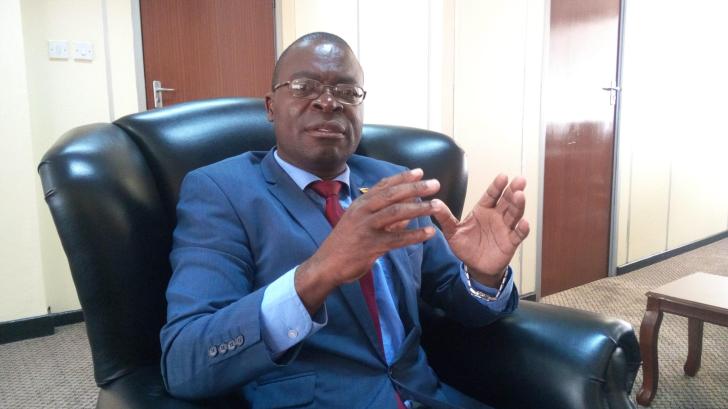News / National
'Zimbabwe decides own international ties'
11 Sep 2024 at 07:33hrs |
1 Views

Zimbabwe is exercising its sovereign right to independently choose its allies, according to Higher and Tertiary Education, Innovation, Science, and Technology Development Minister, Professor Amon Murwira.
Responding to questions following a Cabinet meeting about whether the country's Look East Policy might compromise its independence, Prof Murwira emphasized that Zimbabwe remains firmly in control of its decisions. He noted that, while the country seeks to maintain friendly relations with all and enmity with none, its choices are made without external influence.
"We are making independent decisions," he stated. "Our cooperation with other nations in areas like science, ICT, and digital innovation reflects choices we have made as a sovereign nation. As Africans, we are not children—we are independent. While we move alongside others, we retain full authority over whom we choose to partner with."
He reiterated Zimbabwe's stance: "We are not walking alone, but it is crucial that we decide who we walk with."
Meanwhile, Information, Publicity, and Broadcasting Services Minister Dr. Jenfan Muswere announced that the Cabinet had approved a report on ICT for disaster risk management, presented by Prof Murwira. Dr. Muswere noted that Zimbabwe, like other nations, faces natural and climate-induced hazards such as floods, droughts, cyclones, and disease outbreaks. Advances in information technology, he explained, enable real-time mapping and data analysis, aiding disaster response.
The government initiated the ICT for disaster risk management strategy to mitigate the impact of events like the Covid-19 pandemic, Cyclone Idai, and droughts. This initiative aligns with regional and international conventions that Zimbabwe is a signatory to, which call for the integration of ICT in disaster management efforts.
Dr. Muswere highlighted the initiative's goals, which include enhancing disaster preparedness, mitigation, and recovery through better communication, early warning systems, remote sensing, data analysis, public awareness, and collaboration before, during, and after disasters.
Responding to questions following a Cabinet meeting about whether the country's Look East Policy might compromise its independence, Prof Murwira emphasized that Zimbabwe remains firmly in control of its decisions. He noted that, while the country seeks to maintain friendly relations with all and enmity with none, its choices are made without external influence.
"We are making independent decisions," he stated. "Our cooperation with other nations in areas like science, ICT, and digital innovation reflects choices we have made as a sovereign nation. As Africans, we are not children—we are independent. While we move alongside others, we retain full authority over whom we choose to partner with."
He reiterated Zimbabwe's stance: "We are not walking alone, but it is crucial that we decide who we walk with."
Meanwhile, Information, Publicity, and Broadcasting Services Minister Dr. Jenfan Muswere announced that the Cabinet had approved a report on ICT for disaster risk management, presented by Prof Murwira. Dr. Muswere noted that Zimbabwe, like other nations, faces natural and climate-induced hazards such as floods, droughts, cyclones, and disease outbreaks. Advances in information technology, he explained, enable real-time mapping and data analysis, aiding disaster response.
The government initiated the ICT for disaster risk management strategy to mitigate the impact of events like the Covid-19 pandemic, Cyclone Idai, and droughts. This initiative aligns with regional and international conventions that Zimbabwe is a signatory to, which call for the integration of ICT in disaster management efforts.
Dr. Muswere highlighted the initiative's goals, which include enhancing disaster preparedness, mitigation, and recovery through better communication, early warning systems, remote sensing, data analysis, public awareness, and collaboration before, during, and after disasters.
Source - The Herald
Join the discussion
Loading comments…
































